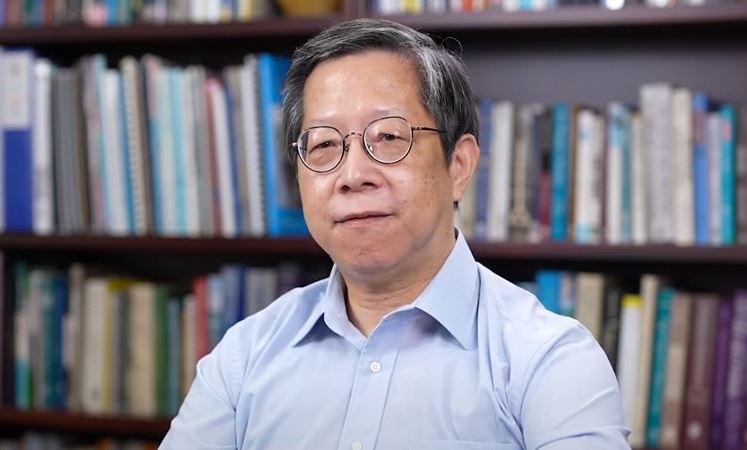
A Journey of Hope: Impact of Hope-based Research 希望之旅:「希望為本」研究之影響
21 October 2022
In the hunt for global talent, don’t forget Hong Kong’s own overseas students, and local workers
23 November 2022Are People Who Perceive Themselves Good Looking More Prone to Behave Selfishly?

Principal investigator: Dr WANG Xijing (Department of Social and Behavioural Sciences)
 Although there is a common saying that “Beauty is in the eye of the beholder”, good-looking people still attract the public’s attention easily and are more favoured by people across different social domains (e.g., dating markets, workplaces, and school settings). In fact, a consensus has largely been reached on a phenomenon known as “what is beautiful is good”, which refers to perceivers attributing various positive traits to good-looking individuals. Despite these positive perceptions, relatively little research has been devoted to examining how attractive individuals actually behave. Would physically attractive people really act in a nice and kind manner as perceived and expected by other people?
Although there is a common saying that “Beauty is in the eye of the beholder”, good-looking people still attract the public’s attention easily and are more favoured by people across different social domains (e.g., dating markets, workplaces, and school settings). In fact, a consensus has largely been reached on a phenomenon known as “what is beautiful is good”, which refers to perceivers attributing various positive traits to good-looking individuals. Despite these positive perceptions, relatively little research has been devoted to examining how attractive individuals actually behave. Would physically attractive people really act in a nice and kind manner as perceived and expected by other people?
The theories of social psychology and evolutionary psychology make divergent predictions in this regard. From a social psychological perspective, attractive individuals should internalize the positive stereotypes from perceivers and eventually develop positive behaviours as expected. In contrast, the evolutionary perspective of attractiveness predicts that attractive individuals would act selfishly because of a sense of entitlement derived from their evolutionary advantage and bargaining power.
Therefore, the interesting question that remains unknown is whether physical attractiveness can predict self-interested behaviour, and if so, in which direction? Dr WANG Xijing, Assistant Professor of CityU’s Department of Social and Behavioural Sciences, has recently conducted research with her team to answer this question.
Across a series of five studies with a total of 1,303 participants from the United States and China, participants’ self-perceived attractiveness was measured or manipulated. Then, their self-interested behavioural intention or actual behaviour was assessed. In addition, their psychological entitlement was measured or manipulated. Study 1 showed that self-perceived attractiveness was positively associated with self-interested behavioural tendencies and psychological entitlement. Moreover, psychological entitlement could account for the relationship between self-perceived attractiveness and people’s inclination to act in a self-interested manner. Study 2 replicated the findings of Study 1 with Chinese undergraduate students by assessing the participants’ actual self-interested behaviour. As such, those who perceived themselves as more attractive allocated themselves more resources; their sense of entitlement accounted for this effect. Study 3 conceptually replicated the findings of Studies 1 and 2 that self-perceived attractiveness could predict self-interested behavioural intention. In addition, it further demonstrated the role of psychological entitlement in this process at a causal level. As such, heightening psychological entitlement could make participants with low self-perceived attractiveness show increased self-interested behavioural intention. The final two studies provided further causal evidence. Participants whose self-perceived attractiveness was temporarily heightened by recalling an incident in which they thought they were physically attractive (Study 4) or by comparing themselves to unattractive others (Study 5) showed increased self-interested behavioural intention and actual behaviour in an economic game.
Therefore, theoretically, these findings support the prediction the evolutionary perspective of attractiveness makes: attractiveness, as a biological marker for health, strength, fitness, and fertility, indicates evolutionary advantages and is naturally favoured by people across different domains (e.g., as allies, leaders, romantic partners, offspring). Due to their great bargaining power, attractive individuals may have learned that they deserve better than others and showed a higher level of psychological entitlement. This could subsequently induce them to act in a self-interested manner.
This research also has practical implications: self-perceived attractiveness that was even temporarily induced could amplify self-interested behaviour. Prior research has documented that others often treat good-looking individuals favourably. This research suggests that instead of showing reciprocity by treating others nicely, attractive people tend to take those treatments for granted and believe that they are entitled to more. Since Self-interested behaviour often threatens collective benefits and cooperation vital to positive functioning in human societies, self-interested behaviour should be discouraged. When it comes to attractive individuals, avoiding biases (e.g., not perceiving and treating them in a positively biased manner) could be a (fundamental) solution to reducing self-interested behaviour among them.
Achievement and publication
Teng, F, Wang, X, Zhang, Y, Lei, Q, Xiang, F, Yuan, S, (2022). ‘Mirror, Mirror on the Wall, I Deserve More Than All: Perceived Attractiveness and Self-Interested Behavior’, Evolution and Human Behavior. https://doi.org/10.1016/j.evolhumbehav.2022.09.005
